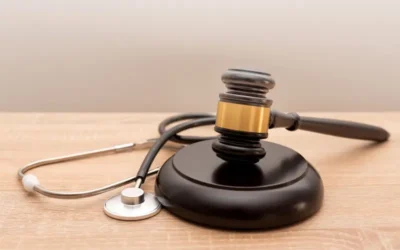With the surge in opioids lawsuits in the United States, medical records and medical record review for attorneys have taken center stage now. According to provisional data from the CDC (Centers for Disease Control)’s National Center for Health Statistics, an estimated 100,306 drug overdose deaths occurred in the United States during the 12-month period ending in April 2021. This is an increase of 28.5% from the 78,056 deaths during the same period in the year 2020.
Overdose deaths from opioids increased to 75,673 in the twelve-month period ending in 2021, a considerable increase from 56,064 the year before. Overdose deaths resulted also from synthetic opioids, mainly fentanyl, and psychostimulants such as methamphetamine during this period. Deaths from natural and semi-synthetic opioids such as pain medication, as well as cocaine deaths also increased. Attorneys handling opioids abuse cases will have to perform medical record analysis to verify the prescription as well as the physical and psychological effects of the drug on the individual.
Medical Record Review for Opioids Abuse
What medical documentation is reviewed to identify opioids abuse and its negative impact on the patient?
- Emergency room records: The person may have sought emergency care following an overdose.
- Records from emergency responders: These records will show whether opioids antagonists such as naloxone have been administered by emergency responders to reverse the effect of opioids drugs.
- Patient history: A patient may be at higher risk for developing opioids addiction if he or she:
- Has a personal or family history of prescription drug abuse, illegal drugs, or alcohol
- Is in the age group 16 – 45
- Suffers from psychiatric diseases such as schizophrenia and depression
- Has experienced preadolescent sex abuse
- Complaints: Typically, patients present with complaints such as anxiety/depression; flushed skin; sweating; vomiting/nausea; dry mouth; constipation; cravings; and increased sensitivity to pain. The medical record reviewer will be looking for such symptoms recorded in the medical chart.
- Physical examination by physicians and nurses: Typical symptoms that may be recorded include the following:
- Indistinct speech
- Loss of consciousness
- Constricted pupils
- Shallow breathing
- Needle marks
- Change in temperature regulation
- Diagnostic tests: Tests to diagnose opioids abuse include that of blood/saliva; hair; x-ray of the lungs which may show pulmonary fibrosis in people who have injected the drug; sweat; urine drug screen.
Any substance use disorder or drug addiction necessitates a comprehensive evaluation that often includes the assessment by a psychiatrist, psychologist or a licensed alcohol/drug counselor.
Records showing the treatments provided to the patient to enable him/her to overcome the addiction and live a drug-free life. The treatment programs could be individual, group or family therapy sessions; the levels of care and settings could vary depending on the patient’s requirements such as outpatient, inpatient, or residential programs. Behavior therapy may be provided by a psychiatrist or psychologist; or counseling and therapy may have been provided by a licensed alcohol and drug counselor.
Other records in the medical chart include detoxification or detox records showing the withdrawal therapy administered to enable the patient to stop taking the opioids as quickly and safely as possible. In this case, the medical records may be from an outpatient clinic, a hospital or a residential treatment center.
When reviewing the medical records, details extracted include the treatment plan, response of the patients, all medically reasonable treatments provided, periodic evaluation and documentation for indicators of possible addiction, and drug abuse; the dates on which controlled substances were prescribed, provided or administered, amounts and dosage forms, and notes from any consultant physicians.
Professional Medical Review Solutions for Attorneys
Medical records are thus a very valuable source of information to identify opioids abuse cases. They provide information such as the patient’s previous healthcare encounters, demographic characteristics, prescription history and so on. In a personal injury claim involving opioids abuse, a quick review of the patient’s medical records can help establish whether the claim is valid. The challenge however, lies in reviewing the records that could stretch to thousands of pages for just a single claimant. These records are also difficult to read and understand.
Attorneys will find medical review solutions a great support when it comes to reviewing voluminous medical records. These solutions include medical chronologies that provide clarity about disputed facts and highlight all aspects that will be acceptable in a court of law. Chronologies or timelines are useful for everyone on the team because they help the team members understand common facts associated with the case. A professionally prepared medical case chronology will list all significant medical events relevant to the allegations made, and also highlight possible areas of liability. These chronologies help identify missing records, if any. Trained medical record reviewers make sure that the medical record set is complete so that the attorney’s discovery process is thorough.
Apart from medical chronology, attorneys can also request medical record summaries that provide a clear idea of the who, what, when and where of each claimant’s medical history. The summaries are prepared in chronological or reverse chronological order in keeping with the attorney’s preference. What is most advantageous about medical record summaries is that they exactly highlight what the medical facts extracted mean for the particular case.
——————————————————————————————————————————————————
Disclaimer: The content in this blog has been traced from reliable internet resources and does not constitute the opinion or inference of MOS or any of its stakeholders. It is for informational purposes only. For a professional opinion on this topic, consult an experienced attorney.




